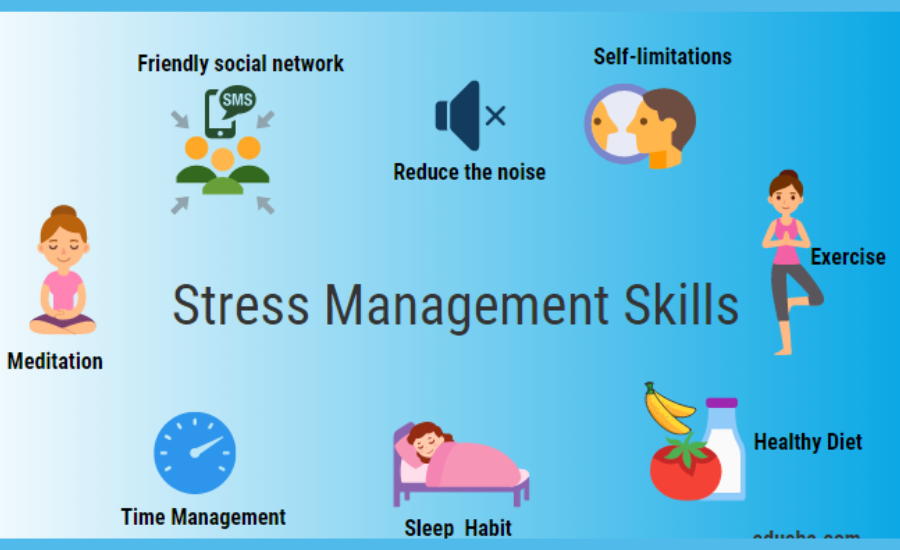Feeling drained and overwhelmed? Stress has a way of creeping into our lives, leaving us feeling exhausted and out of touch. The good news is, you can regain your energy and vitality with effective stress-management techniques designed to bring both your mind and body back into balance. This blog covers practical and scientifically backed strategies to help reduce stress and recharge your system.
Why Managing Stress is Crucial for Your Vitality
Stress is more than just an emotional response; it can have profound physical consequences, too. Chronic stress can lead to fatigue, poor immune function, and even health conditions such as hypothyroidism or heart disease. If left unmanaged, the effects of stress can reduce your overall quality of life.
Learning effective ways to manage stress can not only improve your physical health but also restore your mental focus, enhance relationships, and boost overall productivity.
Step-by-Step Stress Management Techniques
1. Practice Deep Breathing
Sometimes, the simplest methods have the biggest impact. Deep, controlled breathing signals your nervous system to relax, reducing your stress hormones.
How to Practice Deep Breathing:
- Find a quiet place and sit comfortably.
- Breathe in slowly for a count of four.
- Hold your breath for four counts.
- Exhale for a count of four.
- Repeat this for three to five minutes.
Deep breathing is a valuable tool that you can use anytime, whether you’re stuck in traffic or preparing for a big presentation.
2. Exercise Regularly
Exercise isn’t just great for your physical fitness; it has remarkable benefits for your mental health as well. Physical activity releases endorphins, the body’s “feel-good” hormones, that directly combat stress.
It doesn’t need to be high-intensity to work. A brisk 30-minute walk, yoga, or cycling are excellent options to try. Pro tip: exercising outdoors provides an extra boost thanks to the calming effects of nature.
3. Adopt Mindfulness and Meditation Practices
Mindfulness involves focusing on the present moment rather than worrying about the past or future. By training your mind to be more aware and less reactive, you can significantly reduce stress.
- Mindfulness Exercise: Spend five minutes focusing on your breath or observing your surroundings without judgment.
- Guided Meditation Apps: Consider apps like Calm or Headspace for guided meditations tailored to relaxation and stress relief.
Mindfulness is particularly helpful when dealing with recurring stressors such as work deadlines or health concerns, such as managing symptoms of hypothyroidism in Boise.
4. Get Quality Sleep
Lack of sleep can intensify feelings of stress and negatively affect your vitality. Prioritizing sufficient and restorative sleep is one of the most effective ways to recharge your body and mind.
Sleep Hygiene Tips:
- Create a bedtime routine (e.g., reading or stretching before bed).
- Keep your room dark, quiet, and cool.
- Avoid screens at least one hour before bed to improve your melatonin production.
- Limit caffeine intake after midday.
5. Stay Connected with Loved Ones
Social interactions play an essential role in stress management. Spending time with friends or family provides emotional support and helps shift your perspective during challenging times.
If you’re feeling particularly isolated, try participating in group activities or hobbies that allow you to meet new people while reducing stress.
6. Practice Gratitude
Gratitude is a powerful yet often overlooked technique to reframe stress and focus on the positives. According to studies, practicing gratitude can improve mental well-being by increasing feelings of happiness and reducing cortisol levels (the stress hormone).
Here’s an easy approach:
- Every night, write down three things you’re grateful for that day.
- Reflect on these positives and how they made you feel.
Over time, this simple activity rewires your brain to focus on the good, helping you stay resilient against stress.
The Long-Term Benefits of Managing Stress
When you consistently practice these stress-management techniques, the ripple effects on your overall well-being are incredible. You’ll regain:
- Physical energy: Reduced fatigue and noticeable vitality.
- Mental focus: Improved concentration, decision-making, and creativity.
- Stronger immune health: A better ability to fight illnesses caused or worsened by chronic stress.
- Harmony in relationships: Increased patience and communication with loved ones.
By incorporating these strategies into your daily life, you’re making an investment in both your health and happiness.
Final Word of Advice
Stress is inevitable, but it doesn’t have to control your life. Whether it’s practicing mindfulness or heading out for a refreshing walk, every small effort counts toward restoring your vitality.
If you’re feeling overwhelmed and unsure where to start, reach out for support. Sometimes, stress can be tied to underlying health concerns, such as hypothyroidism or other conditions. Those in specific locations, like Boise, can benefit from tailored local treatments to regain balance.
Remember, the key to managing stress lies in consistent effort—every mindful step forward brings you closer to a healthier, happier life.
Stay informed and up-to-date by staying in touch with us regularly: Nhentainef!
